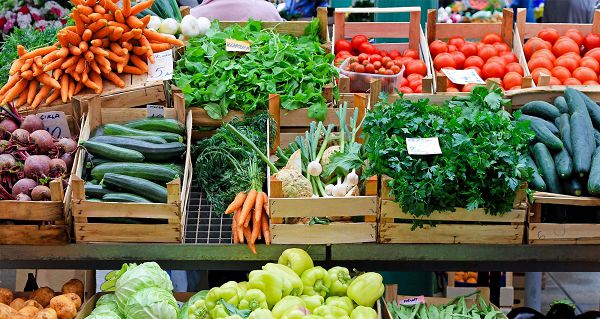
A stitch in time ...
From Saturday, June 1, 2019, Ghana will impose a ban on the export of some vegetables from local sources to the European market as a precaution against a potential international ban.
The action — being enforced by the Plant Protection and Regulatory Commission Services (PPRCS) directorate of the Ministry of Food and Agriculture (MoFA) — could cost the nation huge sums in foreign exchange until it is reversed.
Advertisement
The strain of the action notwithstanding, the precaution is timely in order to avoid a second time ban by the European Union (EU), whose markets are a big part of Ghana’s export destination.
The MoFA estimates that Ghana makes about $18 million a year from vegetable exports and the enforcement of the ban will cost the nation all of that in foreign exchange. But the Daily Graphic gives thumbs up to the MoFA directorate for a decisive action which could prove vastly beneficial, in the long run.
It is heartwarming that the PPRCS has taken an action of such national magnitude on the consideration that it wants to save the country from the harshness and embarrassment of an EU ban.
The fact that the directorate foresees the larger effect of closing its eyes to the potential consequences of the unapproved agronomical practices in the production of vegetables in the country cannot be understated, for, beyond the loss in export revenue and farmer benefits, among others, the consequences of the ban could lower international confidence in Ghana’s agricultural produce.
For a country trying to re-engineer its development through sufficient local production for both local consumption and international export, the worst that could happen to the still fragile economy will be a ban of any of its agricultural exports from the international markets.
But we are also very much concerned about the kind of agronomical practices which have necessitated this self-check.
We must concede that we find it most unfortunate that there are unacceptable levels of virtually poisonous chemical content in our vegetables.
Poisonous chemical content cannot be good for consumption by even livestock. The potential ban, therefore, cannot be glossed over as a mere discriminatory act.
Instead, it is a good move that must save all consumers of Ghana’s vegetables of contaminated produce as stated in our story on Page 16.
Indeed, it alerts us all to the unfortunate condition that could ruin the nation’s working population and future generations by inflicting serious health conditions on the unsuspecting population.
We will, however, request that the MoFA goes beyond this action and warning by educating our farmers on the proper processes of applying chemical inputs on their farms by deploying extension officers to this job.
That we consume huge volumes of our vegetables is not in doubt, which is why we are alarmed at the development.
We would also wish to draw attention to the kind of water sources used for vegetable production in the country. We wish to caution that MoFA and its extension officers take a critical view of this to ensure that contaminated sources are not used.
It is important that farmers understood the implications of an international ban of our vegetables, since they will be the first to be hit by any such ban.



